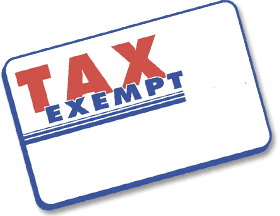 New Jersey’s tax system gives all kinds of special breaks. Lottery winners do not have to pay income taxes on prizes under $10,000. And gamblers can deduct their Atlantic City losses. Companies get tax breaks for creating jobs or investing in certain regions. Churches do not have to pay sales tax on their purchases, and nobody has to pay sales tax on bail bonds or dry cleaning. There are reasons for many of the tax exceptions, such as providing incentives for companies to grow or giving people breaks on medical expenses. But it’s unclear how effective they are, because the state does not produce regular analytical reports.
New Jersey’s tax system gives all kinds of special breaks. Lottery winners do not have to pay income taxes on prizes under $10,000. And gamblers can deduct their Atlantic City losses. Companies get tax breaks for creating jobs or investing in certain regions. Churches do not have to pay sales tax on their purchases, and nobody has to pay sales tax on bail bonds or dry cleaning. There are reasons for many of the tax exceptions, such as providing incentives for companies to grow or giving people breaks on medical expenses. But it’s unclear how effective they are, because the state does not produce regular analytical reports.
A bill up for a vote today (S3153/A2139) in the Legislature would require the governor to include a report on all the tax credits, exclusions, exemptions and breaks — called tax expenditures in policy circles — that, in theory, cost the state lost taxes every year.
“If the ultimate goal is a fair tax code, we need to look not only what people are paying but also what we’re allowing people not to pay,” said Assemblywoman Linda Greenstein, who first introduce the bill in 2006 and re-introduced it in 2008.
The New Jersey Policy Perspective, a liberal-leaning Trenton research group, calls it the “invisible budget.” The state is one of nine in the country that do not report how much income remains uncollected because of tax breaks.
In 2007, New Jersey’s Treasury Department counted 121 sales and use tax breaks, 44 income tax breaks and 28 corporate tax breaks in the state.
“They haven’t received any scrutiny over the years since they were created and placed into the tax code to determine whether or not they’re achieving their purpose,” said Sen. Barbara Buono (D-Middlesex), “No cost-benefit analysis has been done to determine whether or not we should continue them going forward.”
Republican lawmakers have abstained or voted against the bill in committee, saying they support it in theory but say it should take effect next year to give incoming Gov. Chris Christie’s new staff enough time to prepare the report. It is scheduled for a vote today in both houses, which usually indicates it has enough support to pass.
But whether the report will actually be produced is unclear, given the Treasury’s history.
A similar law passed in 2007 and signed by Gov. Jon Corzine required the Treasury to produce a report about jobs created from development subsidies, but the department never acted.
“We as citizens have to follow the law,” said Sen. Shirley Turner, the bill’s sponsor. “You would think that the treasurer of the state of New Jersey would have to follow the law as well.”
Turner said it was “arrogant that they would just blow this off.” She said she’s written twice to the Treasury without any response but had not brought it up with Corzine, who controls the Treasury.
When asked whether there were consequences for ignoring the law, Turner said: “They’re leaving office now. I think that’s a consequence.” Star Ledger.

part of the reason our town is broke, and were losing ems.